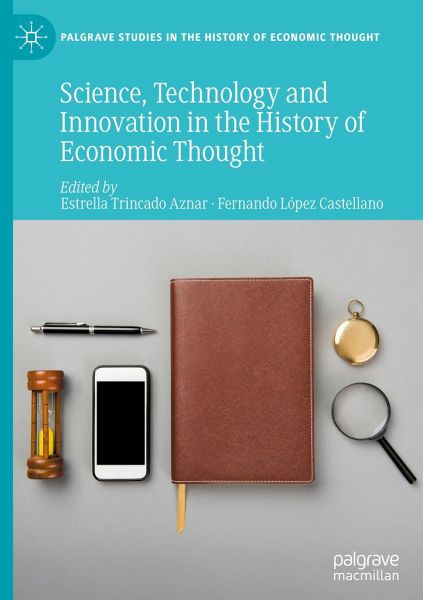
Science, Technology and Innovation in the History of Economic Thought

PAYBACK Punkte
76 °P sammeln!
This book provides an overview of the importance of science, technology, and innovation in the history of economic thought. It charts how science has responded to societal needs and global challenges to highlight the way in which knowledge and technology have been used to benefit society. Particular attention is given to modern concerns, such as climate change, technological unemployment, and social unrest, which are contextualised within the work of the Scottish Enlightenment, Marx, Weber, and Schumpeter. Broader debates, including the relationship between invention and economic development, ...
This book provides an overview of the importance of science, technology, and innovation in the history of economic thought. It charts how science has responded to societal needs and global challenges to highlight the way in which knowledge and technology have been used to benefit society. Particular attention is given to modern concerns, such as climate change, technological unemployment, and social unrest, which are contextualised within the work of the Scottish Enlightenment, Marx, Weber, and Schumpeter. Broader debates, including the relationship between invention and economic development, the alienation of labour, and institutional change, are also considered.
This book aims to shed new light on our understanding of science, technology, and innovation by placing them within ideas from the history of economic thought. It will be relevant to students and researchers interested in the history of economic thought and the economics of innovation and technology.
This book aims to shed new light on our understanding of science, technology, and innovation by placing them within ideas from the history of economic thought. It will be relevant to students and researchers interested in the history of economic thought and the economics of innovation and technology.














